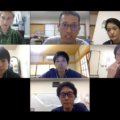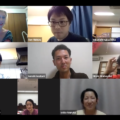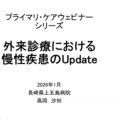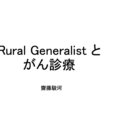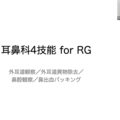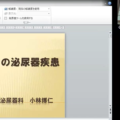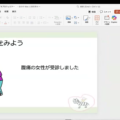『ウェビナー報告日誌 2020「G’day Mate」編 vol.5 ― Ethical Problem ―』
海外の医療現場においても、過不足なくコミュニケーションの取れる英語力の体得を目指すオンライン英会話ウェビナー『G’day Mate』。
これまでも毎回異なるテーマの下、ロールプレイング形式による即興的な英会話トレーニングを行ってきましたが、今回は「頭痛と咳(headache and cough)」というテーマでのロールプレイングに加え、「倫理的問題(ethical problem)」に関するディスカッションも行われました。
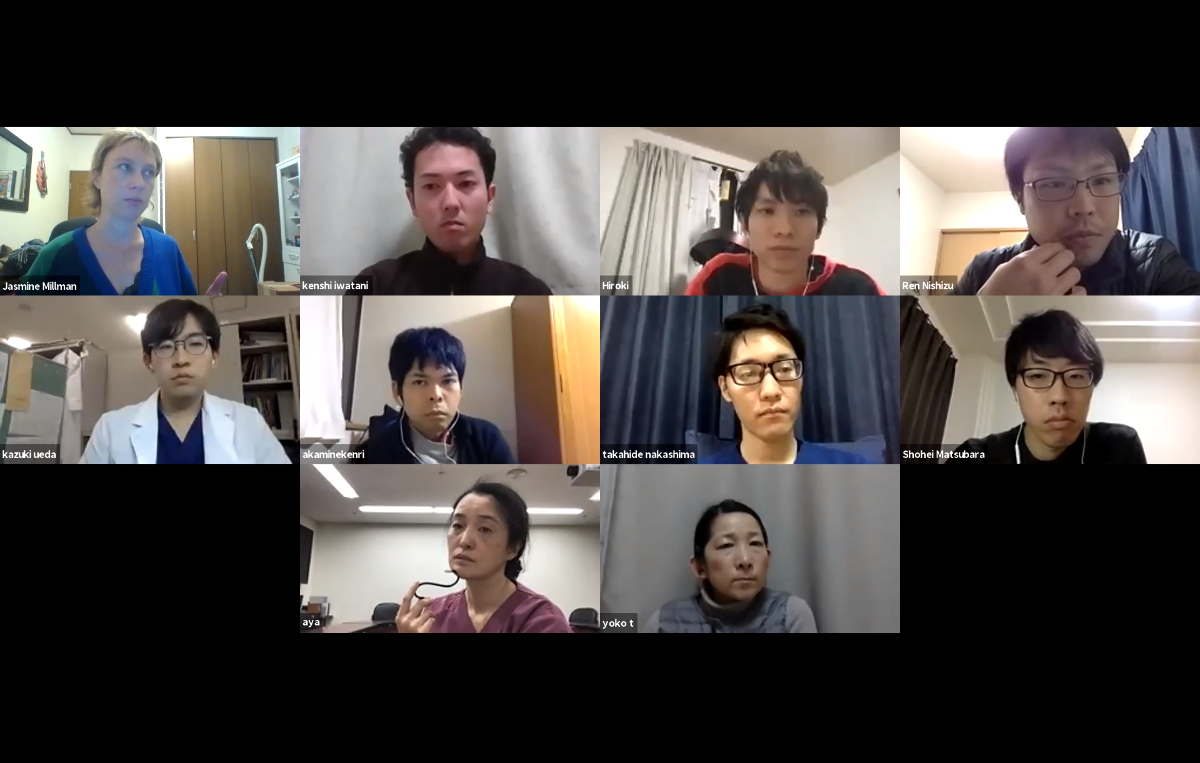
ウェビナー前半では、いつも通りペアに分かれ、「医者と患者」あるいは「医者と医者」のどちらかのパターンを選択してロールプレイングが行われましたが、研修生の先生方も流石に手慣れたもので、以前に比べてもかなり流暢に会話が展開されるようになっていました。
「回を追うごとに、英語での会話力と積極性が磨かれている」とは、毎回のようにお伝えしているように思われますが、やはり今回も同じ感想を抱くこととなり、その点に関しては、ジャスミン先生もとても嬉しそうに研修生の先生方を褒めていらっしゃいました。
また、今回のロールプレイングにおいて、一つの大きなトピックとなったのは、「相手との関係性によって、使う言葉や言い回しを変える」ことの重要性についてです。
普段身を置いている環境のせいもあってか、無意識のうちに「医療的な専門用語」や「医学的な言い回し」を多用する場面が、「医者と患者」という設定でのロールプレイング中にも見られました。
ジャスミン先生はその点について指摘し、実際に患者と会話する際には、より患者が理解しやすくし、患者との意思の疎通をより正しく行うためにも、意識的により一般的な表現を用いることの重要性を強調されました。
「会話をする相手に合わせて、言葉や表現を選ぶ」というのは、ややレベルの高い要求にも思われますが、それだけ研修生たちの英語力が成長したことの表れ、と言えそうです。
なお今回、ウェビナー後半においては、倫理的あるいは法医学的にも判断や決定の難しい問題をテーマに、ディスカッション形式でのトレーニングも実施されました。
【 状況説明 】
サリーは52歳の女性で、母親に対する「蘇生処置拒否(DNR)」を、母親に知らせないまま(無断で)母親のカルテに書き留めるよう、医師に依頼している。
サリーの母親であるメアリー(81歳)は、慢性うっ血性心不全を患っており、体調はここ5年間悪化し続けている。
【 設問 】
どのような倫理的・法医学的な問題が考慮されるべきですか?
非常に難しい判断の求められる問題を前にして、一瞬言葉を詰まらせる様子も見られましたが、最終的にはどの先生方も、自分の意見や考え方についてしっかりと言葉にされていました。
さらに、ディスカッションの後半では、同じように倫理的に難しい判断の求められる実体験について、中島先生から共有されると、研修生たち自らが自発的に、その実体験をテーマにディスカッションを始める場面も。
母国語でも簡単ではない会話を、まだ完璧にとは言わないまでも、しっかりと英語でも出来るようになった先生方の目覚ましい成長が、特に印象的に映った回となりました。
The G’day Mate, the web session focusing on building up practical English skills and knowledge through practical approaches such as role-playing or discussion and so on, was conducted last week again.
Actually, this time the session consisted of two parts and each parts had a main topic respectively: “headache and cough” and “ethical problems”.
In the first part, the registrars divided into a pair and enjoyed their role-playing training as always. Obviously, their conversation in English seemed much more fluent compared to before and their vocabulary had been enhanced, too.
Ms. Millman delightedly pointed it out and praised their development so much, then she also gave the registrars an advice for further development: When you talk with patients, you should use more common words and phrases.
Actually, the registrars unconsciously used technical terms or phrases often in their conversation in the role-playing. So, she emphasized the importance of making happy choice of the words according to the person with whom talked for better communication and comprehension between doctors and patients.
And, in the second part, the registrars participated in the discussion about the topics that was ethically and medicolegally difficult to make a decision.
Amazingly enough, the question seemed really difficult to debate even in our mother language, but the registrars were able to express their opinions and exchanged it in English. Without any doubt, they sufficiently made out discussion about the puzzle.
Throughout the session, we often were able to made sure the registrar’s improvements not only in their English skills, but also in their aggressiveness toward communication with others in English.

